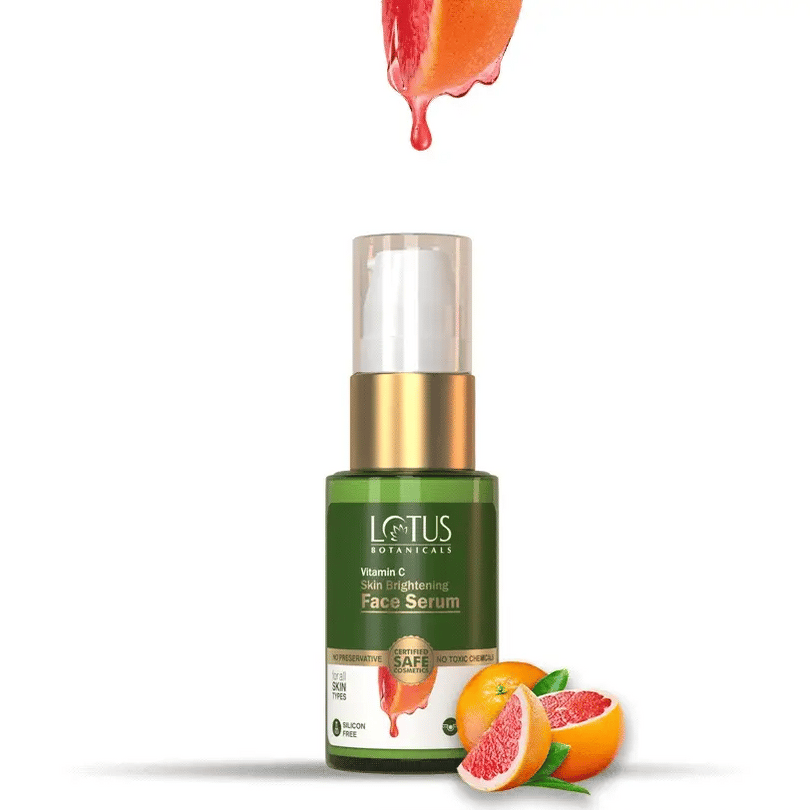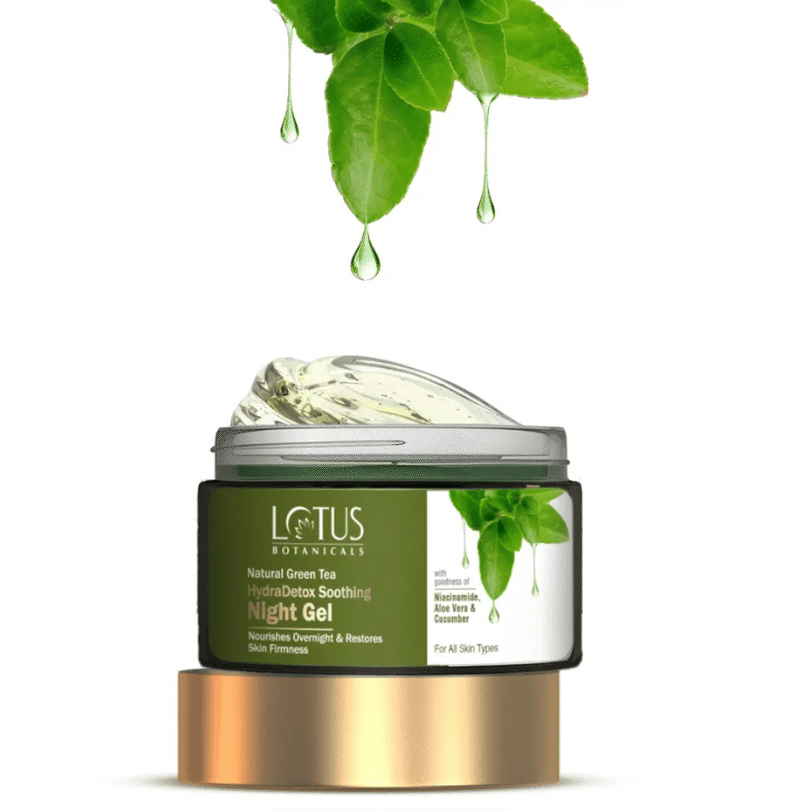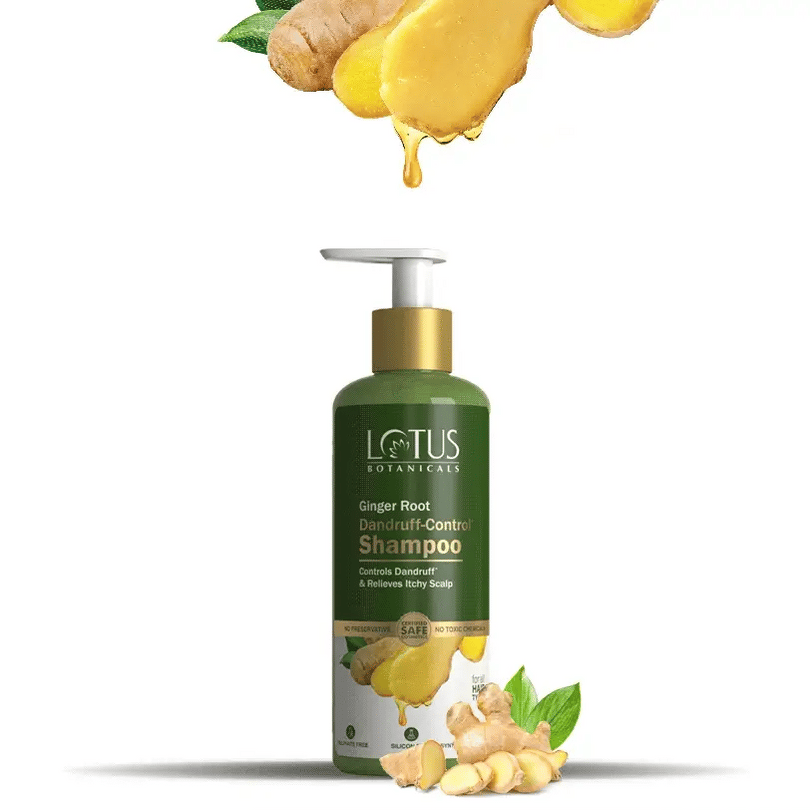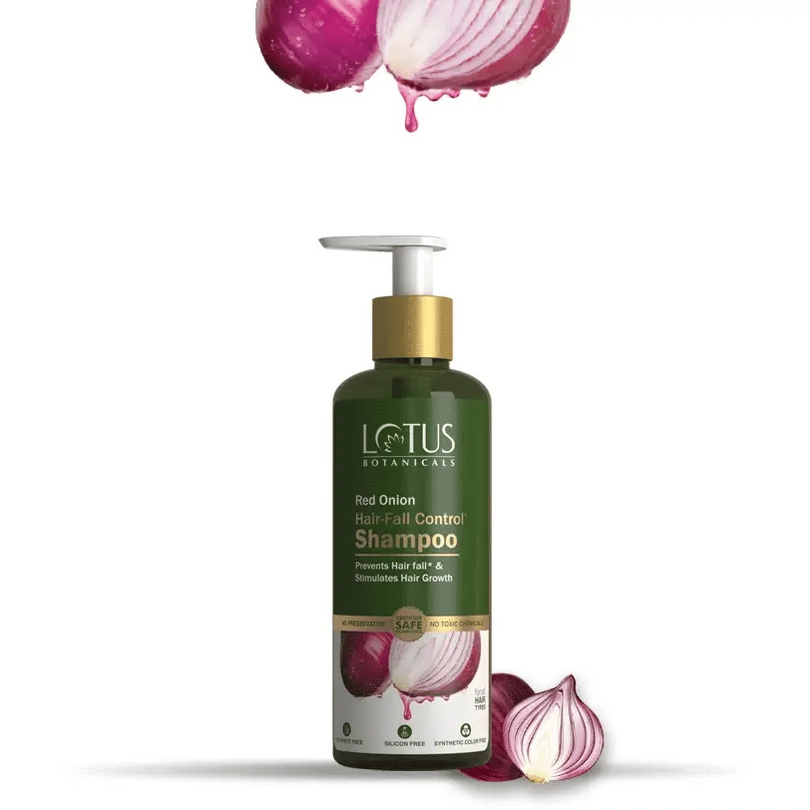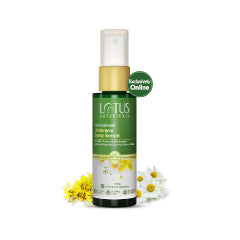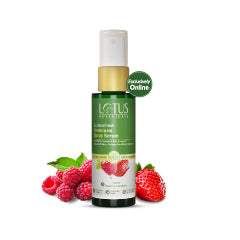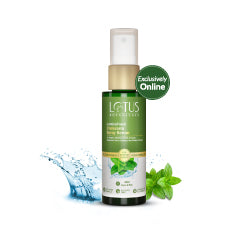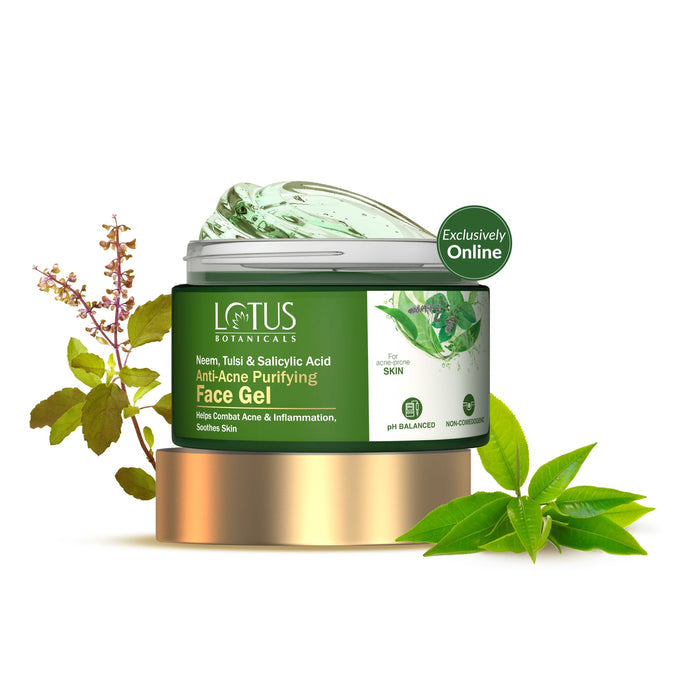
Highlights
-
What are Face Serums and How Do They Work?
-
Best Face Serums for Dark Spots
-
Face Serums for Brightening
-
Face Serums for Different Skin Types
-
Specialty Face Serums
-
Face Serums for Men and Women
-
How to Apply Face Serums Effectively
Introduction to Face Serum

What are Face Serums and How Do They Work?
Face serums are lightweight, highly concentrated formulations designed to deliver potent active ingredients directly into the skin. Unlike heavier creams or lotions, serums have a thinner viscosity and are composed of smaller molecules. This allows them to penetrate deeply into the skin's layers, delivering beneficial nutrients and antioxidants more efficiently.
Serums work by targeting specific skin concerns with high levels of active ingredients. For example, serums may contain Vitamin C to brighten the complexion, hyaluronic acid for hydration, or retinol for anti-aging benefits. After cleansing and toning, a serum is typically applied to the skin before moisturizing. Its deep-penetrating action ensures that the skin receives a potent dose of its beneficial ingredients, which can significantly enhance the overall health and appearance of the skin.
Benefits of Using Face Serums for Skin Care
Integrating face serums into your skincare routine can offer numerous benefits. Here are some key advantages:
- Enhanced Hydration: Ingredients like hyaluronic acid in serums can provide intense hydration, plumping up the skin and reducing the appearance of fine lines.
- Improved Texture and Tone: With regular use, serums can help smooth the skin’s texture and improve its overall tone by reducing hyperpigmentation and dark spots.
- Anti-Aging Effects: Many serums contain antioxidants and other ingredients that help combat the signs of aging such as wrinkles and sagging skin.
In addition to these benefits, face serums are particularly effective for targeted treatments. Whether you're looking to brighten your complexion, reduce blemishes, or firm up your skin, there's likely a serum that's perfect for your needs. Their potent nature means that even a small amount can be highly effective, making them a cost-effective option in the long run.
Q: How often should I use a face serum?
A: For best results, apply face serum twice daily after cleansing and toning but before moisturizing.
Q: Can face serums replace my moisturizer?
A: No, face serums are designed to be used in conjunction with a moisturizer. Serums provide targeted treatment while moisturizers create a barrier to lock in moisture.
Q: Are there face serums suitable for sensitive skin?
A: Yes, there are many serums available that are formulated specifically for sensitive skin. Look for serums with soothing ingredients like aloe vera or niacinamide.
Best Face Serums for Dark Spots

Top Ingredients to Look For
When seeking out face serums to combat dark spots, certain key ingredients have proven to be highly effective. These ingredients not only help in reducing hyperpigmentation but also enhance the overall brightness and health of the skin.
Vitamin C: Known for its antioxidant properties, Vitamin C is a staple in skin brightening treatments. It inhibits melanin production, which can help fade dark spots and lead to a more even-toned complexion.
Niacinamide: Also known as Vitamin B3, niacinamide works by reducing pigmentation, improving skin elasticity, and enhancing its barrier function. It's an excellent ingredient for those looking to treat dark spots while simultaneously soothing the skin.
Hydroquinone: Often referred to as a "bleaching agent," hydroquinone is highly effective in reducing the appearance of dark spots. However, due to its potency, it is recommended to use serums containing hydroquinone under professional guidance.
Alpha Hydroxy Acids (AHAs): Ingredients like glycolic acid fall into this category. AHAs promote cell turnover, which can help diminish the look of dark spots and improve skin texture.
Recommended Products and Brands
Selecting the right serum can be pivotal in your skincare routine.
To complement your skincare routine focused on combating dark spots, consider exploring more products at Lotus Botanicals. The extensive range of skincare solutions caters to various needs and preferences. Discover more on their website: https://www.lotusbotanicals.com/.
Q: How often should I apply face serum for dark spots?
A: For best results, apply your chosen face serum once or twice daily after cleansing and before moisturizing. Always follow the specific instructions provided by the product manufacturer.
Q: Can I use these serums with other skincare products?
A: Yes, serums can be integrated into your existing skincare routine but should be applied after cleansing and before heavier products like moisturizers and sunscreens. For specific combinations or sensitive skin concerns, consult a dermatologist.
Q: Are there any side effects of using serums for dark spots?
A: While most serums are safe for general use, ingredients like hydroquinone may cause irritation for some skin types. It's essential to monitor your skin's reaction and consult with a skincare professional if you experience any adverse effects.
Face Serums for Brightening

Choosing the Right Serum for Glowing Skin
When it comes to achieving a radiant and even skin tone, selecting the right face serum is paramount. Face serums are concentrated formulations designed to deliver powerful ingredients directly into the skin. For those looking to brighten their complexion and reduce the appearance of dark spots, serums enriched with Vitamin C, niacinamide, and alpha hydroxy acids (AHAs) are particularly effective.
Vitamin C is a potent antioxidant that helps in neutralizing free radicals and aids in your skin's natural regeneration process. It also inhibits the production of melanin, which causes skin discoloration. Niacinamide, also known as Vitamin B3, works by reducing inflammation and improving the skin barrier function, leading to a decrease in pigmentation. AHAs, such as glycolic acid, help to exfoliate the surface of the skin, removing dullness and revealing brighter and fresher skin underneath.
When selecting a serum, it's crucial to consider your skin type:
- Dry Skin: Look for serums that contain hydrating ingredients like hyaluronic acid alongside brightening components.
- Oily Skin: Choose a serum with a lightweight formulation that includes salicylic acid to help control excess sebum while brightening.
- Sensitive Skin: Opt for serums with more gentle brightening agents like licorice root extract or vitamin C derivatives like magnesium ascorbyl phosphate.
Case Studies and Success Stories
A compelling case study involves Sarah, a 34-year-old marketing professional from Bangalore who struggled with hyperpigmentation. After trying multiple skincare products with little success, she switched to a face serum containing 15% Vitamin C and ferulic acid. Within three months of consistent use, not only did her dark spots diminish significantly, but her overall skin also exhibited a remarkable glow.
"I was skeptical at first, but after seeing visible results in just a few weeks, I became a true believer in the power of quality face serums. My skin hasn't looked this bright and even-toned in years!" - Sarah
Another success story comes from Raj, a software developer who noticed his skin becoming dull due to long hours spent indoors at work. He incorporated an AHA-based serum into his nightly routine. The exfoliating properties of the serum helped slough off dead skin cells and revitalized his complexion effectively.
Both examples underscore the importance of choosing a serum that not only suits one's specific skin concerns but also includes clinically proven ingredients for brightening and improving skin health.
Q: How often should I apply a brightening serum?
A: It is generally recommended to apply a brightening serum twice daily, once in the morning and once at night, after cleansing and before moisturizing.
Q: Can face serums be used with other skincare products?
A: Yes, face serums can be layered with other skincare products. However, it is important to apply them on clean skin for maximum absorption and effectiveness. Always follow with a moisturizer to lock in the serum's benefits.
Q: Are there any side effects of using brightening serums?
A: While most people do not experience severe side effects, some might encounter mild irritation or redness initially, especially with high concentrations of active ingredients like AHAs. It's advisable to do a patch test before full application.
Face Serums for Different Skin Types

Serums for Dry Skin
For those battling dry skin, the quest for hydration is paramount. The ideal serum for dry skin should not only replenish moisture but also maintain it throughout the day. Ingredients like Hyaluronic Acid, Glycerin, and Vitamin E are known for their exceptional hydrating properties. Hyaluronic Acid, in particular, can hold up to 1000 times its weight in water, making it a hydration powerhouse.
One standout product is the Intensive Hydration Serum from Moisture Max. This serum combines Hyaluronic Acid with natural oils like Jojoba and Argan to deeply nourish the skin while preventing moisture loss. For an added boost, products containing Ceramides can strengthen the skin barrier, thus retaining moisture more effectively.
- Hyaluronic Acid: Attracts moisture to keep skin hydrated and plump.
- Glycerin: A humectant that draws water into the outer layer of your skin from deeper levels of your skin and the air.
- Vitamin E: Helps in fighting off free radicals on the skin, which are a result of daily environmental stressors like unprotected sun exposure and air pollution.
Serums for Oily and Combination Skin
Oily and combination skin types benefit from serums that balance oil production without stripping the skin of its natural moisture. Ingredients such as Salicylic Acid, Niacinamide, and Zinc are excellent for regulating sebum production and minimizing pores. Salicylic Acid also works well in gently exfoliating the skin and removing build-up that can lead to breakouts.
A highly recommended option is the ClearSkin Blemish Fighting Serum which features a blend of Tea Tree Oil and Witch Hazel along with Salicylic Acid to combat acne while soothing inflammation. Niacinamide (Vitamin B3) enhances this effect by improving the skin’s elasticity and barrier function, reducing pore appearance, and evening out skin tone.
- Salicylic Acid: Helps dissolve debris that clogs pores and causes acne.
- Niacinamide: Known for its versatility; it helps reduce large pores, even out skin coloration, improve barrier function, diminish dullness, and soften fine lines and wrinkles.
- Zinc: Controls oil production and calms irritated skin.
Q: What serum ingredients are best for dry skin?
A: Ingredients like Hyaluronic Acid, Glycerin, and Vitamin E are excellent for dry skin as they provide deep hydration and help in maintaining moisture balance.
Q: Can face serums be used daily?
A: Yes, face serums can be incorporated into both morning and evening skincare routines depending on the specific needs of your skin. Always follow up with a moisturizer to lock in the benefits of the serum.
Q: Are there any serums that both dry and oily skin types can use?
A: Serums containing Vitamin C are great for all skin types as they offer hydration while also providing antioxidant protection which is beneficial regardless of whether your skin is dry or oily.
Specialty Face Serums

Serums for Acne and Sensitive Skin
Acne and sensitive skin can be a challenging combination to manage, but the right serum can make a significant difference. Serums specifically formulated for acne-prone and sensitive skin types typically feature lightweight, non-comedogenic ingredients that prevent pores from clogging while soothing the skin. Ingredients such as salicylic acid, niacinamide, and zinc are common as they help to reduce inflammation, regulate oil production, and promote skin healing without causing irritation.
Salicylic acid is particularly effective in penetrating deep into the pores to dissolve excess sebum and dead skin cells, preventing new acne breakouts. Niacinamide, also known as vitamin B3, works to improve the skin's barrier function, reducing moisture loss and shielding it from environmental damage. For those with sensitive skin, serums containing soothing agents like aloe vera or centella asiatica are beneficial as they provide calming effects while supporting skin repair.
- Key Takeaways:
- Look for non-comedogenic formulas to avoid clogging pores.
- Ingredients like salicylic acid can help manage acne by clearing pores.
- Niacinamide improves skin resilience and reduces inflammation.
Anti-Aging Serums and Their Benefits

Anti-aging serums are powerhouse products aimed at reducing the signs of aging such as wrinkles, fine lines, and loss of elasticity. These serums often contain active ingredients like retinol, hyaluronic acid, and vitamin C that not only support collagen production but also add moisture and fight free radicals that lead to aging.
Retinol, a derivative of vitamin A, is acclaimed for its ability to accelerate cell turnover and increase collagen synthesis which aids in diminishing age spots and improving skin texture. Hyaluronic acid is a humectant that attracts moisture from the environment to the skin's surface, ensuring deep hydration that plumps up the skin thereby smoothing out fine lines. Vitamin C is an antioxidant that helps brighten the complexion and protect the skin from photodamage caused by UV rays.
"Consistent use of anti-aging serums can visibly rejuvenate your complexion," says Dr. Jane Smith, a dermatologist based in Bangalore.
- Benefits of Anti-Aging Serums:
- Promotes collagen production to reduce wrinkles.
- Deeply hydrates the skin to smooth out fine lines.
- Protects against environmental damage with antioxidants.
Q: How often should I apply serums for acne and sensitive skin?
A: It is generally recommended to apply these serums twice daily, morning and evening, after cleansing and before moisturizing.
Q: Can anti-aging serums be used by all age groups?
A: Yes, while traditionally targeted at older demographics, starting an anti-aging skincare routine in your late twenties or early thirties can be beneficial for maintaining youthful skin longer.
Q: Are there specific serums you recommend for both acne-prone and aging skin?
A: Yes, look for serums that contain both retinol to address aging signs and salicylic acid for acne management. However, always patch test first or consult with a dermatologist before combining active ingredients.
Face Serums for Men and Women

Gender-Specific Formulations
The skincare industry has long catered to women, but the narrative is swiftly changing as more men are becoming proactive about their skin health. This shift has led to the development of gender-specific formulations in face serums, recognizing the distinct differences in male and female skin. For instance, men's skin is typically thicker, oilier, and ages differently compared to women's skin, which tends to be more sensitive and can have different concerns such as hormonal fluctuations affecting the skin's condition.
Manufacturers have responded by formulating serums that address these unique needs. Men's face serums are often designed with more robust textures and ingredients that control oil production and soothe razor burn, while still targeting universal concerns like dark spots and aging. Meanwhile, serums for women are frequently packed with higher concentrations of hydrating and brightening ingredients to target fine lines, wrinkles, and uneven skin tone. These products might contain components like hyaluronic acid, which is celebrated for its deep moisturizing properties.
An example of gender-specific formulation can be seen in products that incorporate sandalwood, which is beneficial for both sexes but can be particularly effective in soothing men’s post-shave irritation. To explore more about sandalwood's benefits, visit Sandalwood Powder: The Magic Ingredient for Healing Skin Problems.
Why Both Men and Women Should Use Serums
Regardless of gender, the fundamental goal of using a face serum is to deliver high concentrations of active ingredients directly into the skin. Face serums are essential for targeting specific skin issues like dark spots and enhancing overall skin brightness. They are typically lightweight, making them ideal for layering under moisturizers or sunscreen.
For women, applying a serum can be a game-changer in their skincare routine, especially when dealing with issues like hyperpigmentation or early signs of aging. For men, who might not be as accustomed to multi-step skincare routines, incorporating a serum can significantly improve skin texture and clarity. Since men's skin tends to produce more sebum which can lead to acne, a serum formulated with salicylic acid can prevent breakouts while brightening the complexion.
Furthermore, both genders can benefit from the preventive aging effects of antioxidants found in many serums. Antioxidants like Vitamin C not only help in brightening the skin but also protect it against damage from pollutants and ultraviolet rays, a concern for everyone irrespective of gender. Check out this Vitamin C infused sunscreen which doubles up on protection: Vitamin C Sunscreen.
Q: Are there any specific serums that both men and women can use?
A: Yes, unisex serums are available that cater to both men and women. These products focus on common concerns such as hydration, brightness, and anti-aging without targeting gender-specific issues.
Q: How often should I apply face serum?
A: It is generally recommended to apply face serum twice daily, morning and night, after cleansing and before moisturizing your skin.
Q: Can face serums replace my moisturizer?
A: No, face serums should not replace your moisturizer. Serums are formulated to penetrate deeply into the skin to deliver active ingredients, whereas moisturizers are designed to hydrate and protect the surface of the skin.
How to Apply Face Serums Effectively

Step-by-Step Guide
To achieve the best results from your face serums, particularly those formulated for dark spots and brightening, it's crucial to apply them correctly. This step-by-step guide will walk you through the process, ensuring optimal absorption and efficacy.
- Cleanse Your Skin: Begin with a clean face. Use a gentle cleanser to remove impurities and excess oils, ensuring that your skin is fresh and ready to absorb the serum. Consider exploring products like the ones found on Lotus Botanicals for quality cleansers.
- Apply Toner: After cleansing, apply a toner. This step is crucial as it helps to balance the pH of your skin and remove any last traces of dirt that might hinder serum absorption.
- Apply the Serum: Dispense a few drops of serum onto your fingertips. Gently tap it onto your face and neck, focusing on areas with dark spots. Avoid rubbing the serum in, as this can cause irritation; instead, let your skin absorb it naturally.
- Wait and Layer: Allow the serum to fully absorb into your skin, which might take a few minutes. After it has absorbed, you can apply your regular moisturizer or night cream to seal in the serum and add hydration.
- Sun Protection: In the morning routine, always follow up with sunscreen, like those available at Lotus Botanicals Vitamin C Sunscreen, especially if your serum contains ingredients like vitamin C or retinol which can increase sun sensitivity.
Common Mistakes to Avoid
While applying face serums seems straightforward, certain common errors can compromise their effectiveness. Here are key mistakes to avoid:
- Using Too Much Product: Serums are highly concentrated, and a little goes a long way. Using more than recommended can lead to product wastage and may cause skin irritation.
- Skipping Patch Tests: Always perform a patch test, especially if you have sensitive skin. This can prevent potential adverse reactions across a larger area of your skin.
- Neglecting the Neck and Décolletage: The treatment shouldn't stop at your jawline. Extend the application to your neck and décolletage to prevent signs of aging in these visible areas.
- Immediate Layering of Products: Give your serum ample time to absorb before applying moisturizers or makeup; otherwise, it might not penetrate effectively.
Q: How often should I use my face serum?
A: It depends on the specific serum and your skin type, but generally once or twice daily after cleansing and before moisturizing is recommended.
Q: Can I use multiple serums at once?
A: Yes, you can layer serums but ensure they do not contain conflicting active ingredients. Allow each serum to absorb fully before applying the next.
Q: Is serum necessary if I have oily skin?
A: Absolutely! Just choose a serum that's suitable for oily skin types, preferably with ingredients that regulate oil production and prevent breakouts.
To explore more about skincare routines or related products, visit Lotus Botanicals, where you can find detailed insights and high-quality skincare products tailored for different skin concerns.
Conclusion
Recap of Best Face Serums for Dark Spots and Brightening
In our comprehensive guide, we explored a variety of face serums that have proven effective in tackling dark spots and enhancing skin brightness. Each product was selected based on its active ingredients, such as Vitamin C, Niacinamide, and Hyaluronic Acid, which are renowned for their ability to even out skin tone and promote a radiant complexion. We discussed how these serums work at a cellular level to reduce melanin production, thus diminishing dark spots and giving your skin a luminous glow.
For instance, serums containing Vitamin C not only help in lightening hyperpigmentation but also protect the skin against environmental damage. Niacinamide (Vitamin B3) serums improve skin elasticity and increase ceramide levels in the skin, which helps retain moisture and fortify the skin’s barrier. Moreover, products with Hyaluronic Acid ensure that the skin remains hydrated, plump, and youthful-looking by holding moisture up to 1000 times its weight in water.
Final Thoughts and Recommendations
Selecting the right serum for dark spots and brightening depends largely on your specific skin type and concerns. It is essential to consider formulations that align with your skincare goals while being mindful of any potential sensitivities or allergies. For optimal results, incorporate these serums into your daily skincare routine consistently, and always follow up with a broad-spectrum sunscreen to protect your newly brightened skin from further UV damage.
We recommend starting with a patch test to ensure compatibility with your skin. It's also beneficial to layer these serums under a moisturizer to lock in the active ingredients and enhance their efficacy. For further reading on skincare routines and product recommendations, consider visiting Lotus Botanicals where you can find resources like inspirational skincare quotes and detailed guides.
Q: How long does it take for face serums to reduce dark spots?
A: Results can vary based on the product's formulation and the severity of dark spots. Generally, you might start seeing noticeable improvements within 4-6 weeks of consistent use.
Q: Can face serums be used with other skincare products?
A: Yes, face serums can be layered with other skincare products. It is typically applied after cleansing and toning but before moisturizing. Make sure to allow each product to absorb fully before applying the next.
Q: Are there any side effects of using face serums for brightening?
A: While most face serums are safe for daily use, some individuals may experience mild irritation, especially with high concentrations of active ingredients like Vitamin C. Always conduct a patch test before regular application.
Highlights
-
What are Face Serums and How Do They Work?
-
Best Face Serums for Dark Spots
-
Face Serums for Brightening
-
Face Serums for Different Skin Types
-
Specialty Face Serums
-
Face Serums for Men and Women
-
How to Apply Face Serums Effectively







